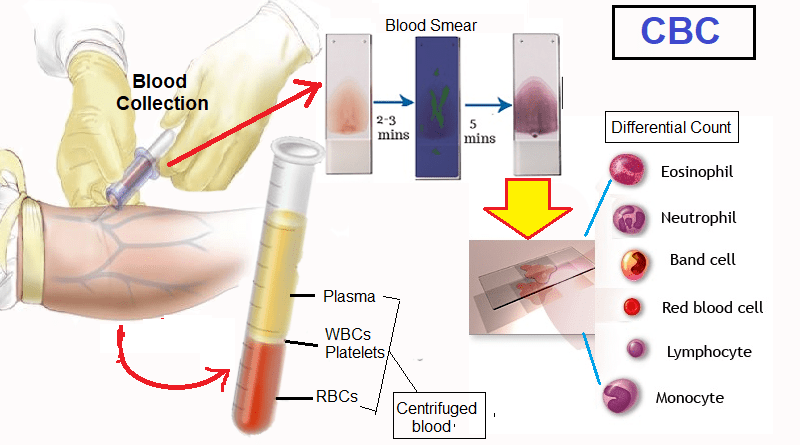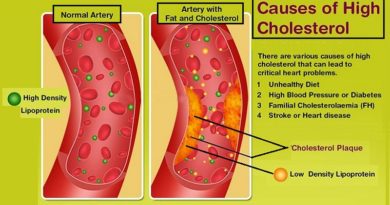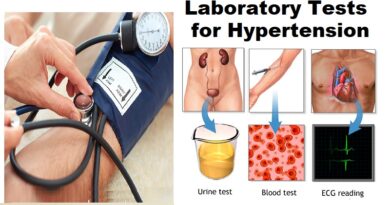Complete Blood Count Test (CBC): What It Measures and Its Significance
Last Updated on 01/05/2026 by Helal Medical
The Complete Blood Count test is a commonly requested medical laboratory test that provides important information about the blood cells, including red blood cells, white blood cells, and platelets. This test is used to diagnose various health conditions, monitor the progress of treatment, and check for side effects of medications.
What Does a Complete Blood Count Test Measure?
The Complete Blood Count (CBC) test is a common laboratory test that provides a comprehensive overview of the different components in your blood. The results of the CBC test can provide valuable information about your health and help diagnose various conditions. The following are the key components that are measured in a CBC test:
- Red Blood Cells (RBCs)
They are essential components in your blood that carry oxygen from your lungs to the rest of your body. CBC test measures the number of RBCs. The test also measures the size, shape, and hemoglobin content of the RBCs, which can indicate some conditions such as anemia.
- Hemoglobin
It is a protein in your red blood cells that carries oxygen from the lungs to the rest of your body. The CBC test measures the amount of hemoglobin in your blood, which can provide information about the oxygen-carrying capacity of your blood and help in diagnosis of anemias.
- Hematocrit
is the percentage of red blood cells compared to blood volume. The CBC test measures the hematocrit level, which can provide information about the volume of RBCs in your blood and help diagnose conditions such as anemia.
- White Blood Cells (WBCs)
They are a type of blood cells that play a crucial role in your body’s immune system by fighting off infections. The CBC test measures the number of WBCs in the blood, which can indicate various infections and conditions such as leukemia. The test also measures the type and function of the WBCs, which can provide additional information about your immune system.
- Platelets
They are tiny cells in the blood that help to prevent excessive bleeding. The CBC test measures the number of platelets in your blood, which can provide information about the clotting ability of your blood and help diagnose conditions such as thrombocytopenia.
What conditions Complete Blood Count Test can diagnose
The CBC test can help in diagnosis and monitoring a wide range of health conditions. Here are some of the useful data that a Complete Blood Count Test can reveal about your health:
- Anemia:
Low levels of red blood cells or hemoglobin can be a sign of anemia, a condition in which your body doesn’t have enough healthy red blood cells to carry oxygen to the rest of your body. Anemia can cause fatigue, weakness, and shortness of breath. A low red blood cell count, hemoglobin or hematocrit levels or abnormal red blood cell size or shape may indicate anemia. - Infections:
High levels of white blood cells can indicate an infection, as your body is producing more white blood cells to help fight off the infection. By measuring the number and type of white blood cells in your blood, a CBC test can help determine the presence and severity of an infection. - Blood Disorders:
Abnormal levels of red or white blood cells or platelets can indicate a blood disorder, such as leukemia or a clotting disorder. Decreased RBCs count indicate anemia. Increased WBCs is called leucocytosis and decreased counts called leucopenia. Thrombocytosis is increased platelets count. - Inflammation:
High levels of certain types of white blood cells can indicate inflammation, which can be a symptom of various conditions, such as arthritis or infections. By measuring the levels of these types of white blood cells, a CBC test can help determine if you have an underlying inflammatory condition and monitor its progression. - Dehydration:
An elevated red blood cell count or hemoglobin level may indicate dehydration. - Nutritional deficiencies:
Low levels of red blood cells or hemoglobin may indicate a nutritional deficiency, such as iron, folate, or vitamin B12 deficiency.
Why Is a CBC Test Important?
A CBC test is a simple and non-invasive way to provide important information about your health. It is used to diagnose various conditions, monitor the progress of treatment, and check for side effects of medications. The results of a CBC test can also help to determine the cause of symptoms such as fatigue, weakness, or shortness of breath, and can provide important information about your overall health.
SUMMARY
The Complete Blood Count (CBC) test is a commonly used medical laboratory test that provides information about the components of a person’s blood, including red blood cells, white blood cells, hemoglobin, hematocrit, platelets and other criteria. The results of the test can help diagnose conditions such as anemia, infections, blood disorders, inflammation, and nutritional deficiencies. The CBC test is non-invasive and provides important information about a person’s overall health, making it a useful tool for both diagnosing and monitoring health conditions.
SOURCES
- MedlinePlus – Health Information from the National Library of Medicine.
- https://medlineplus.gov/ency/presentations/100152_1.htm
- American Society of Hematology: A professional society for healthcare providers specializing in blood disorders, provides information about the CBC test and its importance.
- American Red Cross: A non-profit organization that provides information about blood donations, including the CBC test.
- Mayo Clinic: A leading medical center, provides information about the CBC test and its uses.
- Lab Tests Online: A service provided by the American Association for Clinical Chemistry, provides information about laboratory tests, including the CBC test.
Discover more from Helal Medical Manila
Subscribe to get the latest posts sent to your email.




